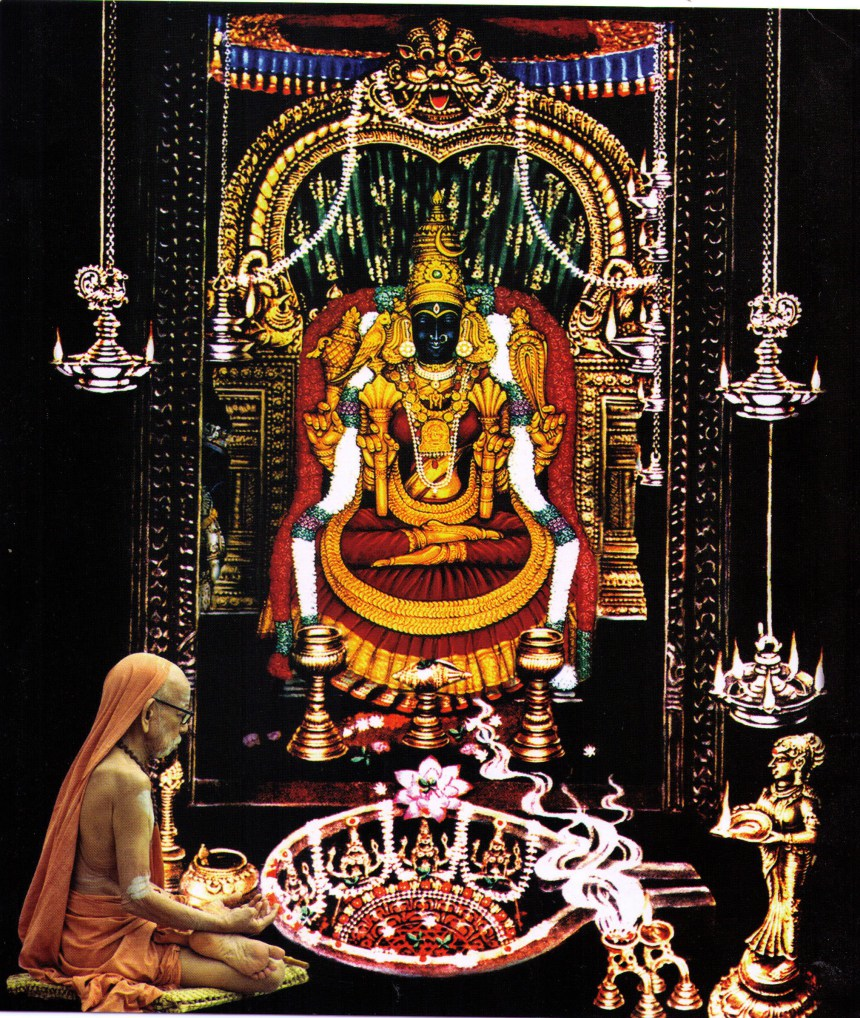Our worldly existence is a mixture of joys and sorrows. Some experience more joy than sorrow and some more sorrow. Then there may be a rare individual here or there who can control his mind and keep smiling even in the midst of sorrow. On the other hand, we do see a quite a number of people who have much to be happy about but who keep a long face. If a man lacks for something it means he is unhappy.
All creatures long for everlasting happiness. There are two abodes of eternal happiness. One is devaloga, the world of celestials or paradise, the other is Atmajnana, the state of awareness of the Self. The Atman, the Self is bliss; it is the Brahman. To realise this truth is to attain everlasting blessedness. But this state, this joy supreme, is not experienced by the mind or the senses. It is the highest, the most exalted state and it transcends the senses and the mind; it is a state in which a man becomes aware that "the body is not I, the intelligence is not I, the consciousness is not I".
Paradise is the place where happiness is always experienced by the mind and the senses. Music and dance - music of the gandharvas, dance by Rambha and Menaka - Kalpaka, the tree that grants all wishes, Kamadhenu, the cow that grants all wishes, the garden known as Nandana: devaloka means all these. It is indeed a playground and there it is always joy. But a difference exists between the joy known in paradise and the bliss experienced by the knower of the Self. It is true that there is eternal happiness in paradise but not so far the man who goes there because he will not be a permanent resident of it. If he has earned a good ideal of merit he will be able to reside there until he is reborn. When he has enjoyed the fruits of his meritorious actions, the Lord will send him back to earth. It is true that there are accounts in the Puranas of mortals who earn a great ideal of merit and become gods themselves to reside in the celestial world. But the same Puranas also tell us that the gods themselves are not permanent denizens of paradise. There are stories in these texts of the celestials being hounded out of paradise by demons like Surapadma and Mahisasura and of Indra, their king, himself being pushed down to earth to undergo suffering there.
On a hypothetical basis, eternal happiness may be ours in svarga or paradise. But there is no instance of anyone having actually lived there permanently nor does it seem possible for anyone to do so.
Happiness gained through the senses is derived from external objects. These cannot be ours for all time. There were occasions when Indra had to suffer all by himself when he lost everything, including Kamadhenu, the Kalpaka tree, Airavata and even Indrani. So the happiness associated with paradise, which is dependent on external objects, can never be enduring. "Sadananda" or eternal bliss is for him who has neither anything external nor internal and who dwells in his Self as a sthita-prajna ( a man of steady wisdom) as explained by the Lord in the Gita, one who remains nailed to his Self. The joy experienced by Indra is but a droplet of the vast ocean of Atmic bliss, so says the Acarya in his Manisa Pancakam: "Yad Saukhyambudilesalesata ime Sakradayo nirvrtah".
According to Upanisads you will have external bliss if the senses and the mind are removed in the same way as you draw off the rib from a stalk of corn and remain just the Atman. It needs great courage to pluck out the body and the senses realising that " I am not the body. Its joys and sorrows are not mine". Such courage is not earned without inner purity. Conduct of religious rituals is meant for this, for cittasuddhi ( purity of the consciousness ). There are forty samskaras to refine a man with Vedic mantras and to involve him in the rites associated with those mantras. These are the first steps towards the indissoluble union of the individual self with the Absolute - it is Advaitic mukti, non - dualistic release.
We must strive to become inwardly pure by the performance of works. Then, with the inner organs ( antah - karana ) also cleansed, we must mediate on the Self and become one with It. This is the concept of Sankara. If a man has such a goal before him and keeps performing rituals throughout ( even without becoming a sannyasin ) he goes to Brahmaloka on death. During the great deluge when Brahma is absorbed in the Brahman he too attains non - dualistic liberation, so says Sankara. But if a man performs rituals for the sake of rituals without keeping before him the goal of oneness with the Brahman he will be rewarded with paradise, but not the paradise that is eternal. Though the stay be brief he will enjoy greater happiness there than on earth. It is samskaras that earn a man heaven.

